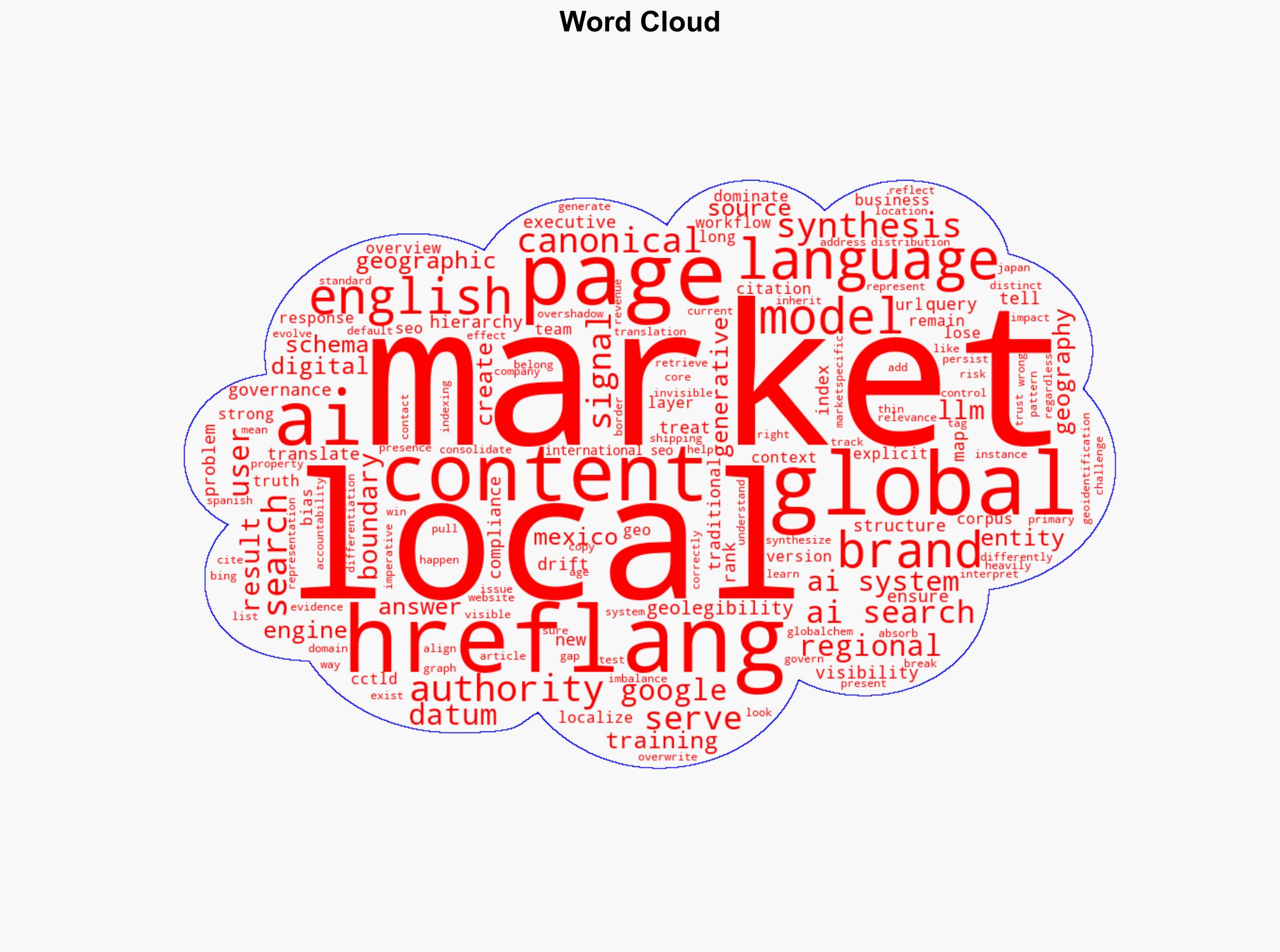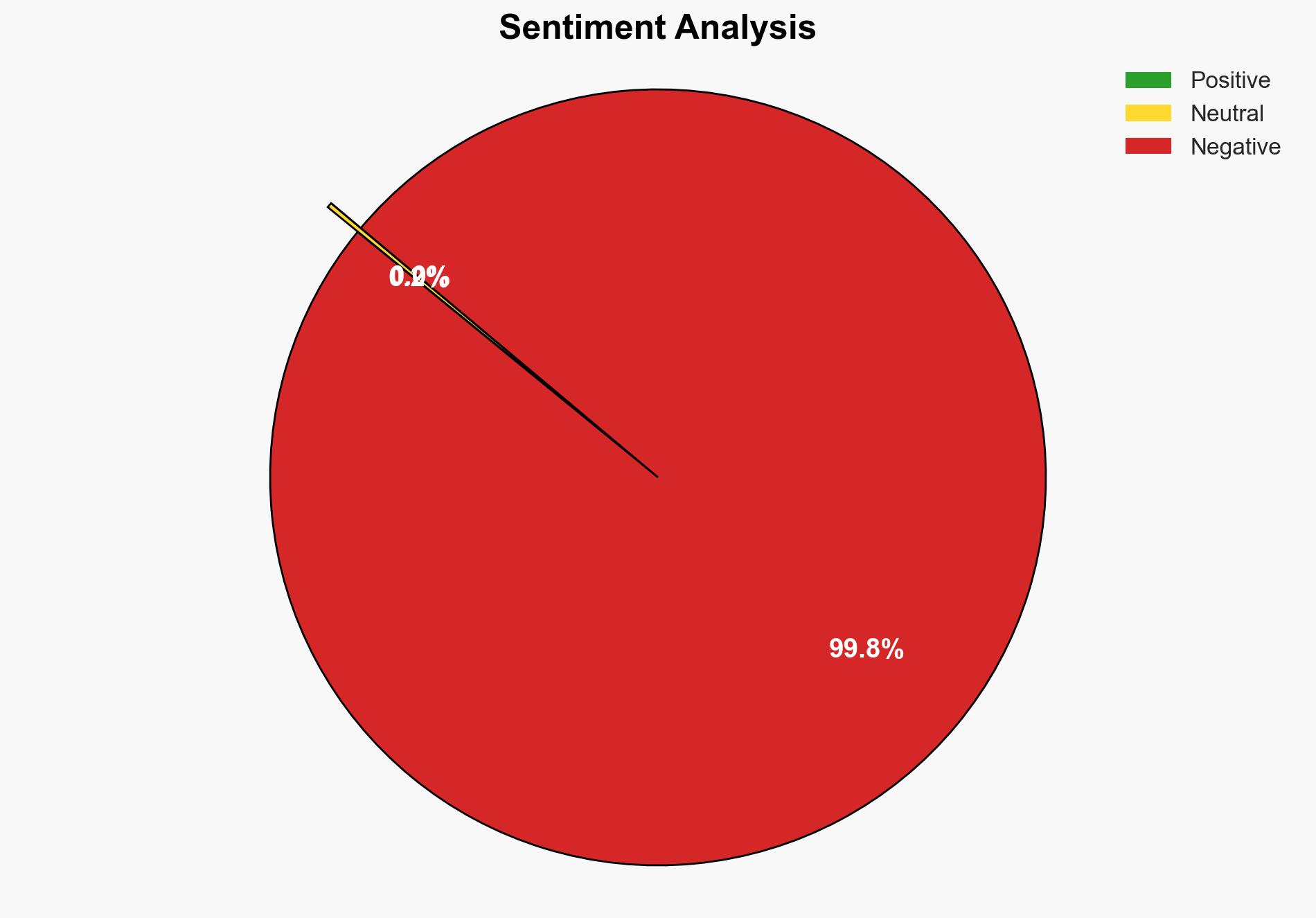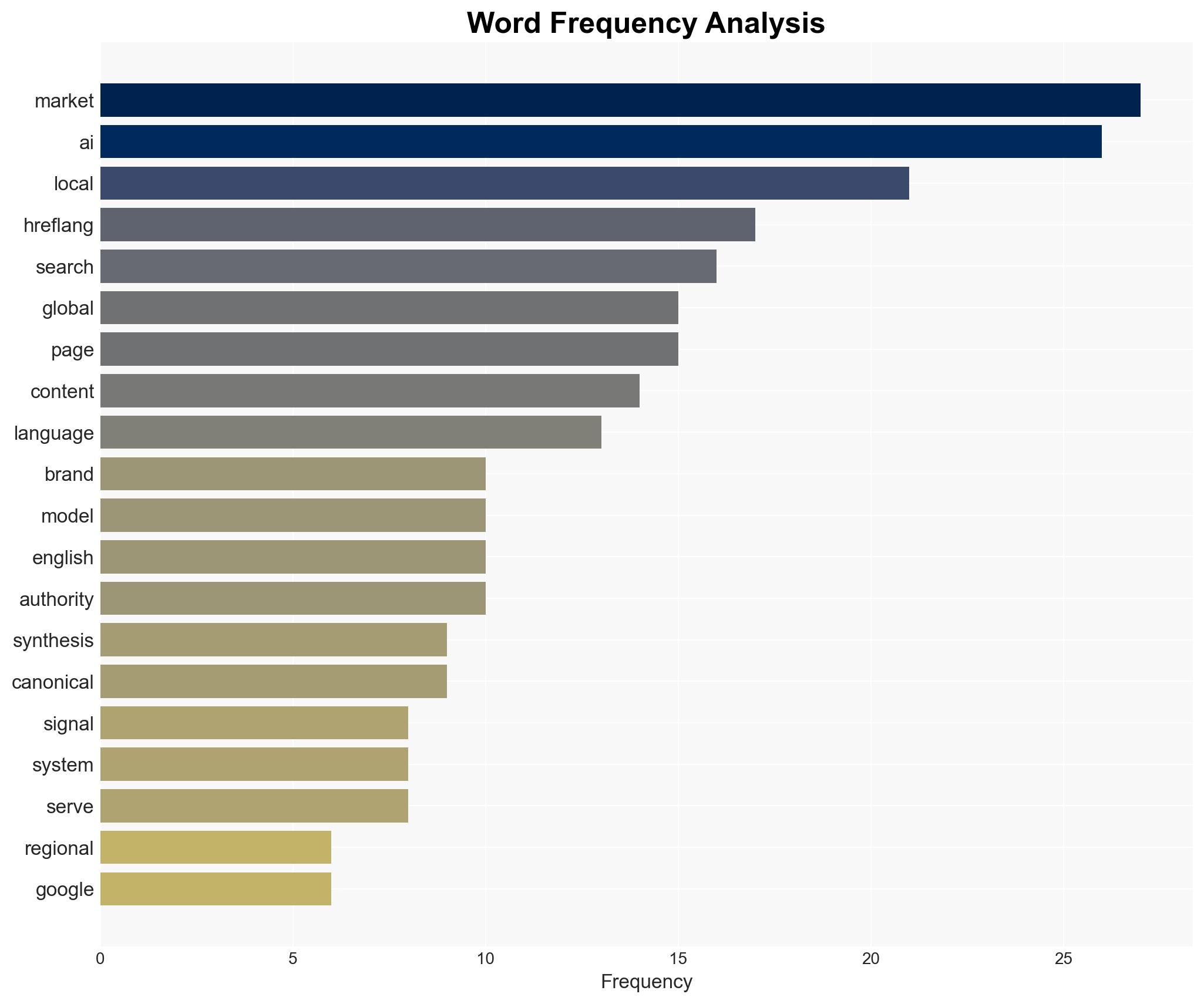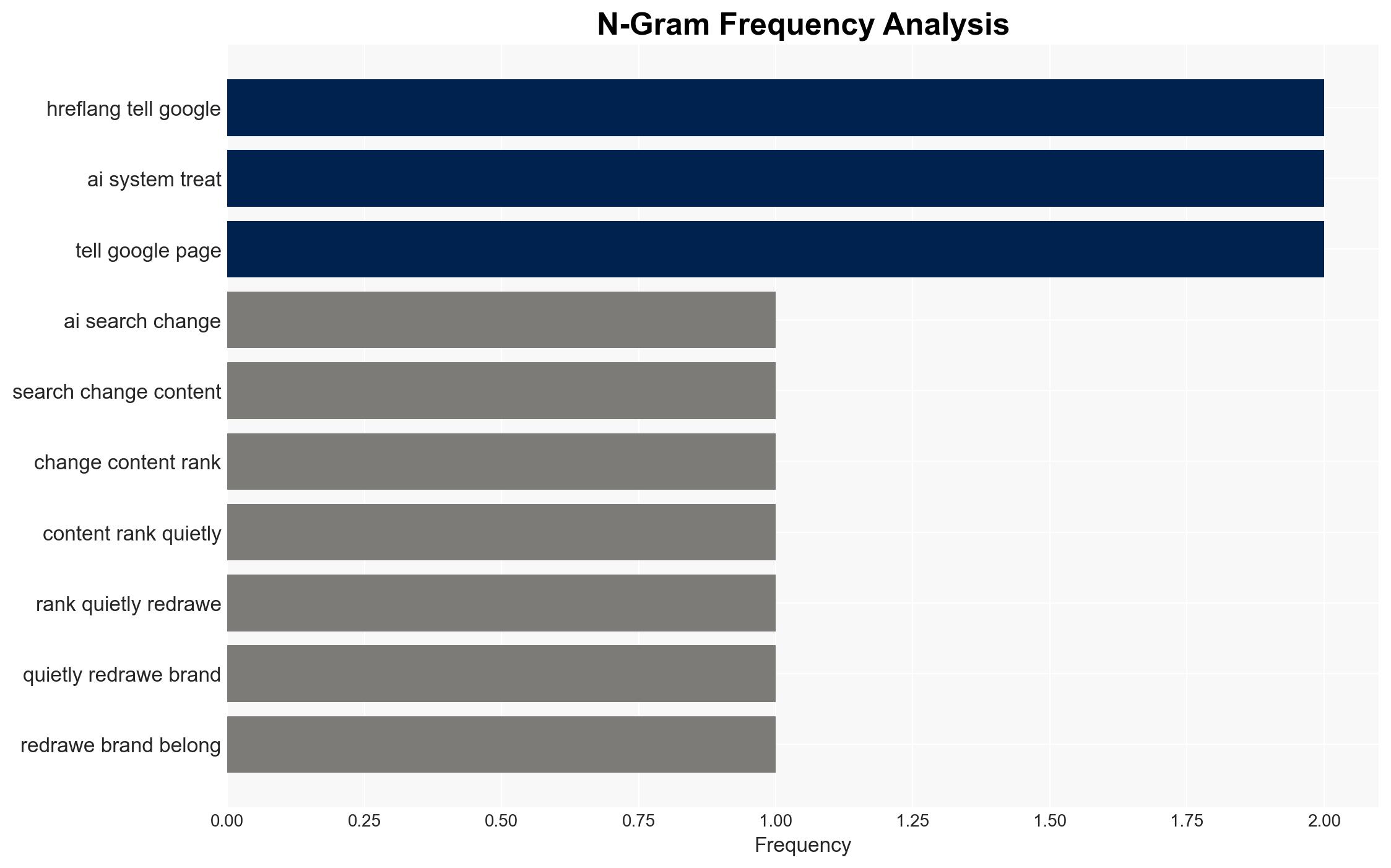AI Geo-Identification Issues Disrupt International SEO Strategies and Local Content Visibility
Published on: 2025-11-26
AI-powered OSINT brief from verified open sources. Automated NLP signal extraction with human verification. See our Methodology and Why WorldWideWatchers.
Intelligence Report:
1. BLUF (Bottom Line Up Front)
There is a moderate confidence that AI geo-identification failures are significantly impacting international SEO strategies by misrepresenting local content and favoring global English content. The most supported hypothesis is that AI systems, due to their training data biases and structural limitations, are inadvertently prioritizing global content over localized content. Recommended action includes enhancing AI training data diversity and implementing more robust geo-tagging mechanisms to ensure accurate localization.
2. Competing Hypotheses
Hypothesis 1: AI geo-identification failures are primarily due to biases in training data that favor English content, leading to a misrepresentation of local content in search results.
Hypothesis 2: The failures are a result of inherent structural limitations in AI systems that cannot adequately process and prioritize localized content due to canonical consolidation and market aggregation biases.
Hypothesis 1 is more likely due to the observed dominance of English content in AI outputs and the known biases in training data distributions. However, Hypothesis 2 cannot be entirely ruled out as structural issues like canonical consolidation also contribute to the problem.
3. Key Assumptions and Red Flags
Assumptions: It is assumed that AI systems will continue to rely heavily on existing training data distributions and that current localization techniques are insufficient.
Red Flags: Over-reliance on English content could indicate a systemic bias that might not be easily corrected without significant changes to AI training methodologies.
Deception Indicators: There is no direct evidence of intentional manipulation, but the aggregation bias could be exploited by entities seeking to dominate search results.
4. Implications and Strategic Risks
The misrepresentation of local content could lead to economic disadvantages for local businesses unable to compete with global brands in search visibility. This could escalate into broader economic impacts if local markets are overshadowed. Politically, there could be increased scrutiny and regulation of AI systems, particularly in regions where local content is consistently misrepresented.
5. Recommendations and Outlook
- Enhance AI training data diversity by incorporating more localized content from non-English sources.
- Develop and implement more robust geo-tagging and localization mechanisms to ensure accurate content representation.
- Best-case scenario: AI systems adapt to better recognize and prioritize local content, improving international SEO strategies.
- Worst-case scenario: Continued misrepresentation leads to significant economic and political backlash against AI systems.
- Most-likely scenario: Incremental improvements in AI systems lead to gradual enhancements in localization accuracy.
6. Key Individuals and Entities
Google, Bing, GlobalChem Mexico, GlobalChem Japan
7. Thematic Tags
Cybersecurity, International SEO, AI Bias, Localization
Structured Analytic Techniques Applied
- Adversarial Threat Simulation: Model and simulate actions of cyber adversaries to anticipate vulnerabilities and improve resilience.
- Indicators Development: Detect and monitor behavioral or technical anomalies across systems for early threat detection.
- Bayesian Scenario Modeling: Quantify uncertainty and predict cyberattack pathways using probabilistic inference.
- Cognitive Bias Stress Test: Structured challenge to expose and correct biases.
- Network Influence Mapping: Map influence relationships to assess actor impact.
- Narrative Pattern Analysis: Deconstruct and track propaganda or influence narratives.
Explore more:
Cybersecurity Briefs ·
Daily Summary ·
Support us





